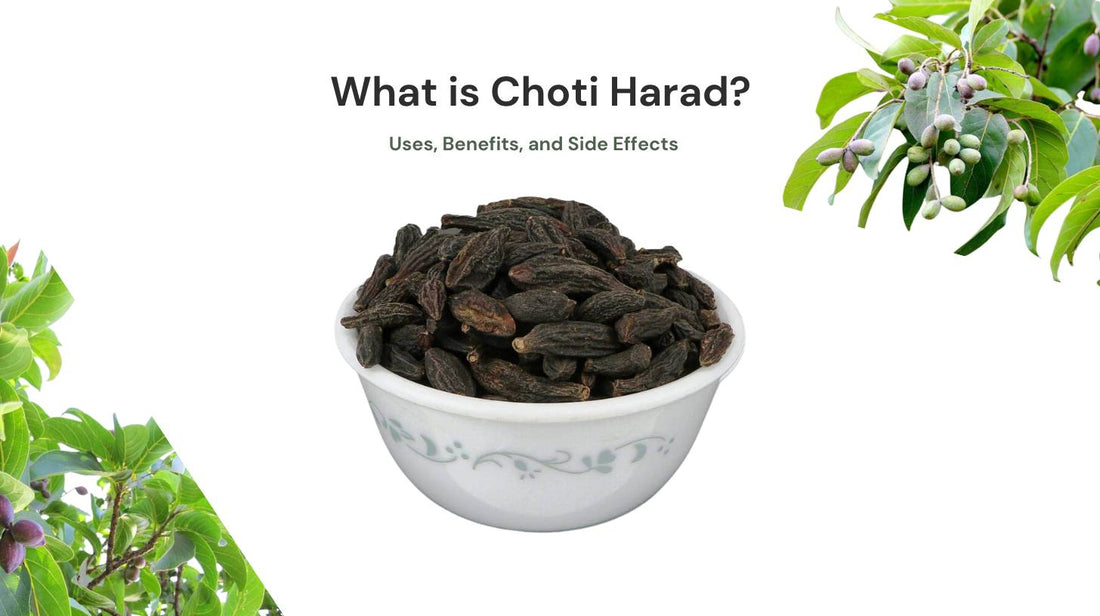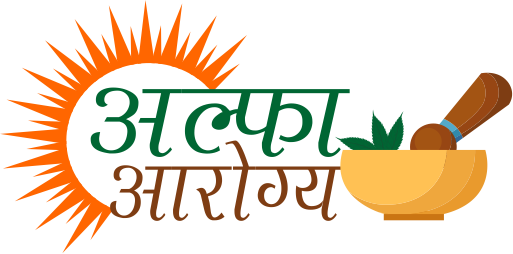
What is Choti Harad: Uses, Benefits, and Side Effects
Choti Harad, also known as Haritaki, is a fruit derived from the Terminalia chiluba tree and is widely used in Ayurvedic medicine. It is known for its numerous health benefits, including weight loss, constipation relief, skin benefits, and much more.
Weight Management: Harad powder benefits weight management by reducing cholesterol buildup, improving metabolism, and detoxifying the body.
Constipation Relief: Harad is highly effective in treating constipation naturally and provides almost instant relief. It can be consumed as a powder, capsule, or decoction, and it is recommended to start with a small dosage and gradually increase as needed.
Skin Benefits: Harad has pitta-balancing properties, which help purify the blood and reduce the chance of skin diseases. It also has rasayana, or rejuvenating properties, which help develop new cells and lower dead cells, resolving pimples and acne-related issues.
Heart Health: Harad has cardioprotective properties, which strengthen the cardiac muscles and improve the heart's overall health. It also helps in the growth of beta cells, which helps in reducing insulin resistance.
Immunity Boost: Harad is known for its rejuvenating properties, which help improve a person's overall immunity.
Arthritis Treatment: Harad has acetone extract that can effectively control arthritis by lessening the inflammatory effect. An aqueous extract from the dried fruit of Terminalia Chebula has anti-inflammatory properties.
The Ayurvedic Way
In Ayurvedic therapy, Choti Harad is used to treat various health conditions, including constipation, diabetes, inflammation, and stomach disorders. It is also used to manage bacterial infections, although it should only be used when consulting a doctor. The herb is believed to have an antibacterial property and has shown activity against several human pathogenic bacteria.
Choti Harad is also known for its rejuvenating properties, which help improve a person's overall immunity. It protects against age-related diseases by fighting oxidative stress and boosting the concentration of antioxidants like glutathione, vitamin C, gallic acid, and ellagic acid.
The herb is consumed in various forms, such as powder, capsule, or decoction, and can be taken with warm water to boost digestion and increase metabolism. It is also used to fry haritaki powder in clarified butter (ghee) to boost immunity and increase longevity.
It is called Harad in Hindi, while in Sanskrit, it is known as Haritaki. In Tamil, it is called Kadukkai; in Telugu, it is known as Karakkaya. In Kannada, it is called Alale; in Malayalam, it is known as Katukka.
Benefits of Harad Powder: 'It's only logical!'
These chemical enzymes in Choti Harad benefit your body and have heart-protective, liver-protective, antibacterial, antifungal, and antiviral properties. They also have antioxidant properties, which help reduce inflammation and remove constipation by regulating bowel movements.
Active Components of Choti Harad and Their Health Benefits
| Chemical Enzymes | Benefits |
|---|---|
| Chebulinic acid | Has heart-protective, liver-protective, antibacterial, antifungal, and antiviral properties. |
| Tannin acid | Has antioxidant properties and helps remove constipation by regulating bowel movements. |
| Gallic acid | Has antioxidant properties and helps in reducing inflammation. |
| Glycosides | Play an essential role in removing constipation by regulating bowel movements. |
| Dyes | Have antioxidant properties and help remove constipation by regulating bowel movements. |
Incorporate Harad Powder Easily With Taste
Goodness Gol Laddoo!
Ingredients:
- 1 cup Haritaki powder
- 1 cup jaggery powder
- 1/2 cup ghee (clarified butter)
- 1/2 cup dried coconut powder
- 1/2 cup almonds, chopped
- 1/2 cup raisins
- 1/2 cup sesame seeds
- 1/4 cup poppy seeds
- 1/4 cup water
- 1/4 teaspoon cardamom powder
Instructions
- Heat ghee in a pan and add sesame, poppy, almonds, and raisins. Sauté until the almonds turn golden brown.
- Add Haritaki powder, coconut powder, and cardamom powder to the pan. Mix well.
- In a separate pan, heat jaggery powder and water until the jaggery melts.
- Add the melted jaggery to the Haritaki mixture and mix well.
- Remove the pan from heat and let it cool down for a few minutes.
- Once the mixture is cool enough to handle, shape it into small laddoos.
- Let the laddoos cool down completely before storing them in an airtight container.
This recipe makes around 20-25 laddoos. These laddoos can be consumed as a healthy snack or as a dessert. They are rich in antioxidants, fiber, and healthy fats, making them nutritious for all ages.
Choti Harad Barfi
Ingredients:
- 1 cup Choti Harad powder
- 1 cup milk powder
- 1/2 cup sugar
- 1/4 cup ghee
- 1/4 cup water
- 1/4 teaspoon cardamom powder
- 1/4 teaspoon saffron strands
- 1/4 cup chopped nuts (optional)
- 1/4 cup raisins (optional)
Instructions:
- In a pan, roast the Choti Harad powder on low heat until it turns aromatic.
- In another pan, heat the ghee and add the milk powder. Cook until it turns golden brown.
- Add the roasted Choti Harad powder to the milk powder and mix well.
- Heat the sugar and water in another pan until it forms a syrup.
- Add the sugar syrup to the Choti Harad-milk powder mixture and mix well.
- Add the cardamom powder and saffron strands to the mixture.
- If using, add chopped nuts and raisins to the mixture.
- Remove the mixture from heat and let it cool down a bit.
- Once it's cool enough to handle, shape the mixture into small barfi pieces.
- Let the Choti Harad Barfi cool down completely before storing it in an airtight container.
In modern times, Choti Harad powder can be incorporated into various recipes, such as laddoos, barfi, and churan, to make them more nutritious and beneficial for overall health. It can also be consumed with warm water, honey, or milk for specific health benefits.
In a Jist
Harad powder benefits weight management by reducing cholesterol buildup, improving metabolism, and detoxifying the body. It is highly effective in treating constipation naturally and provides almost instant relief. Harad has pitta-balancing properties, which help purify the blood and reduce the chance of skin diseases.
It also has rasayana, or rejuvenating properties, which help develop new cells and lower dead cells, resolving pimples and acne-related issues. Harad has cardioprotective properties, strengthening cardiac muscles and improving the heart's overall health. It also helps in the growth of beta cells, which helps in reducing insulin resistance.
Harad is known for its rejuvenating properties, which help improve a person's overall immunity.
The ayurvedic approach is the all-rounder approach. Every herb has its multifaceted benefits and usage. Add a small addition to your plate, and experience an era of better health and body for you and your family.
Also Read: Eucalyptus Oil: Benefits for Muscle Pain and Beyond
